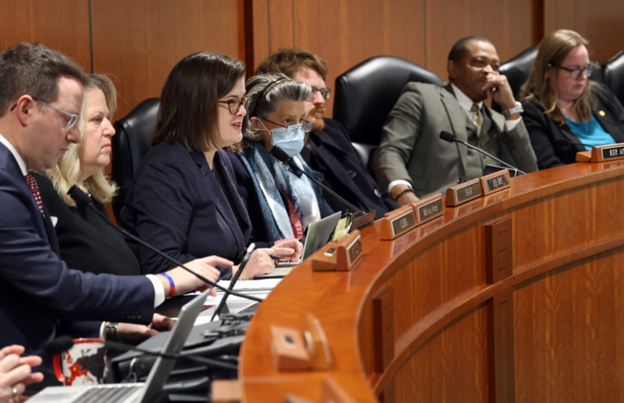LANSING, Mich., Oct 27, 2023 — An effort is underway at the Michigan House of Representatives to make it easier to bring justice to the wrongfully convicted. State Rep. Kara Hope (D-Holt) introduced House Bill 5271 this week to amend a state law on post-conviction DNA testing, by expanding the eligibility for an individual to get tested.
Since 2001, DNA testing technology has significantly advanced — for example, the testing now requires smaller amounts of material to obtain results. Hope’s legislation would update the law to better reflect current technological capabilities; allow more individuals to be eligible for post-conviction DNA testing; and would promote public safety by creating an avenue to find the actual perpetrator.
“Michigan enacted a post-conviction DNA testing law in 2001 to assist in identifying the factually innocent and ensuring that the true perpetrator is held accountable,” Hope said. “While this law assists defendants who have been wrongfully convicted by providing them with access to DNA testing, it is woefully outdated and in need of some common-sense fixes. That’s why I’m proud to have introduced HB 5271 to modernize and humanize the way we treat those who may have been, or indeed were, wrongfully accused.”
Hope is working on this legislation with Cooley Law School’s Innocence Project, where she interned as a law student. The Innocence Project is the only post-conviction DNA innocence organization in the state that works to exonerate the innocent.
“Using DNA testing as a tool to exonerate the innocent and identify the actual perpetrator is critical to keeping our communities safe,” said Marla Mitchell-Cichon, counsel to the Cooley Law School Innocence Project. “The advancements in DNA technology require us to expand the availability of post-conviction DNA testing in Michigan. And these amendments will ensure that Michigan is prepared for future advancements.”
HB 5271 would amend Michigan’s Code of Criminal Procedure to:
- Remove the requirement that an individual must be incarcerated to obtain post-conviction DNA testing.
- Allow access to post-conviction DNA testing in guilty plea cases.
- Reduce restrictions on the availability of testing.
###

